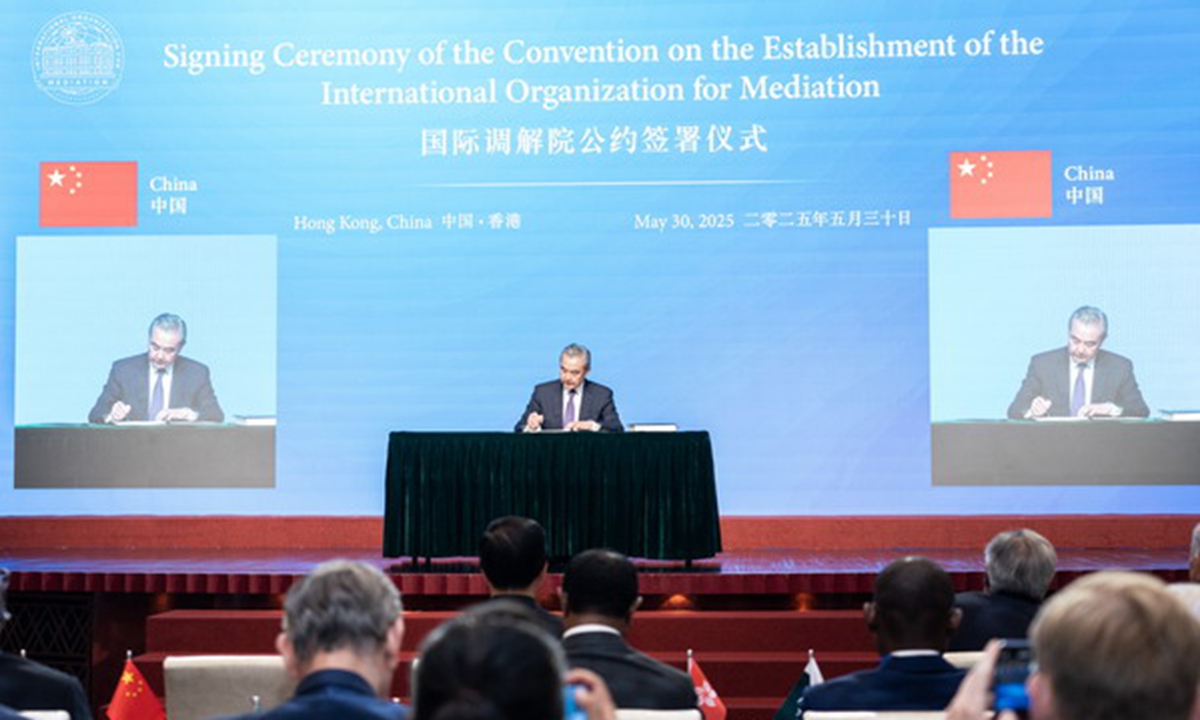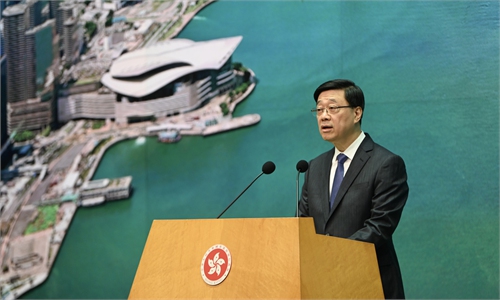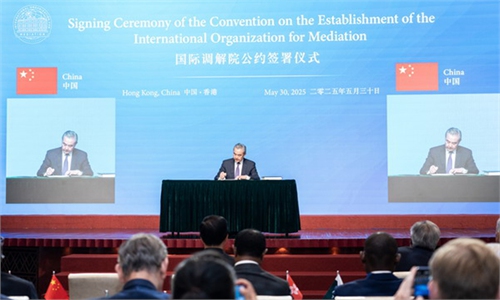The International Organization for Mediation injects new impetus of peace into a turbulent world: Global Times editorial

Photo: www.fmprc.gov.cn
The establishment of the IOMed is a historic breakthrough in the international dispute settlement mechanism. For a long time, settlement of international dispute has mainly relied on judicial adjudication and arbitration mechanisms, both of which have certain limitations. Mediation is based on respecting the wills of the parties, and explores win-win solutions through the assistance of a neutral third party, with the final decision made by the disputing parties. Hong Kong's judicial practice shows that the settlement rate of court mediation cases is about 50 percent, which fully proves the unique value of mediation in resolving complex contradictions. This approach, which contains the wisdom of "harmonious coexistence," has opened up a new path for dealing with international disputes with large cultural differences and high political sensitivity.
At present, the world is undergoing rapid change of a century, and various contradictions are intertwined. Using a "Cold War" confrontational mindset to deal with various global and regional issues has clearly deviated from the needs of the times and the development trend of the rule of law. In the existing international judicial system, developing countries often face difficulties such as lack of voice, insufficient applicability of rules, and high costs. However, some major countries are accustomed to handling international disputes through unilateral sanctions, often bypassing existing international rules and mechanisms and acting on their own. This not only fails to solve problems, but also gives rise to more contradictions. The international community has never been so eager to resolve disputes peacefully. From the historic reconciliation between Saudi Arabia and Iran in Beijing to the signing of the Beijing Declaration on ending the division by various Palestinian factions, countries have seen the great potential and possibility of resolving differences through dialogue. The birth of the IOMed is timely, and its establishment is an important step in promoting the development of the international order to a more just and reasonable direction.
The IOMed advocates for the peaceful and amicable settlement of international disputes, aiming to build more harmonious international relations and embody an inclusive and pluralistic culture of the rule of law. Against the backdrop of profound adjustments in the global order, the IOMed provides the international community with a public good of global rule of law that is peaceful, just, trustworthy, and efficient.
At the level of international law, the IOMed represents an innovative response to the United Nations (UN) Charter's principle of peaceful dispute settlement. It breaks through the traditional methods of handling disputes - whether between countries, between countries and investors, or between equal commercial entities - offering the greater flexibility, convenience, lower costs and more effective implementation. At the same time, it complements and enhances existing international dispute settlement mechanisms such as litigation and arbitration, helping to build a more comprehensive and diversified system for resolving international disputes.
Through consultations among the negotiating parties, Hong Kong was agreed to be the headquarters of the IOMed - a strong recognition by the international community of the culture of the rule of law under "one country, two systems." The return of Hong Kong itself is a successful example of dispute settlement, and its prosperity and stability stand as a testament to the vitality of "one country, two systems." With the advantages of both common law and civil law traditions, a mature legal environment, and extensive experience in "super mediation", Hong Kong - an international metropolis backed by the motherland and connected to the world — offers an ideal environment for the development of the IOMed. This "rising star of international rule of law," the IOMed, will surely shine in tandem with the "pearl of the orient," creating a future of shared brilliance.
As the world reaches the crossroads of history, what countries are calling for is not an arena of power, but a dialogue platform that transcends the zero-sum mentality of "you win, I lose" and promotes the friendly settlement of disputes. This is the mission of the IOMed. It carries not only the practical need to resolve disputes, but also the civilized pursuit of eliminating conflicts through dialogue and resolving disputes through consultation. The healthy growth of this seedling of peace requires the care and support of the international community. We welcome more countries to join hands to nurture it.



